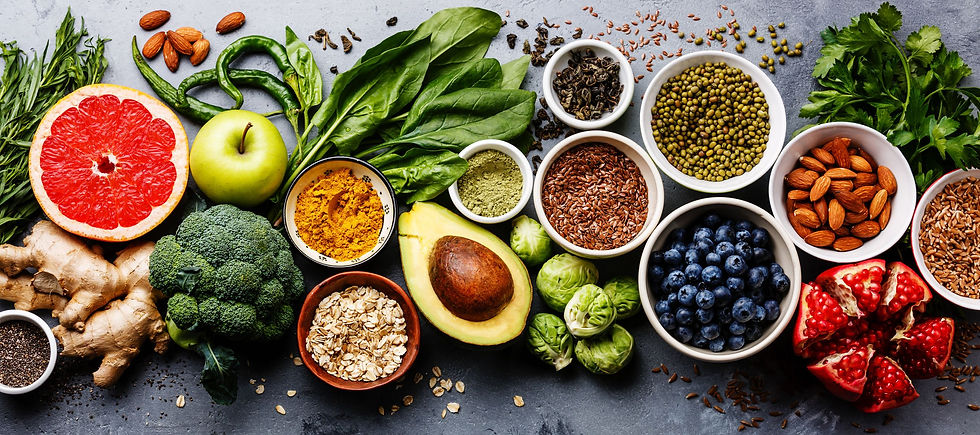
We hear health- or diet-related buzzwords every day. It’s sometimes challenging not to feel overwhelmed by all the health information that’s thrown at us by the media – to the point that it can become mind-numbing.
…..and yet, here I go talking about another diet…
So, what is a plant-based diet? Is it simply another fad? Is it just “one” diet? Is it healthy?
Well...no; no; and yes – it can be healthy, depending upon your food choices.
Plant-based diets do not necessarily consist of only plants; however, the focus is on trying to consume more plant-based foods and fewer animal-based foods. Plant-based diets may include any of the following:
· Vegan diet*
· Vegetarian diet*
· Flexitarian diet or Semi-vegetarian diet*
· Mediterranean diet*
*I will expand upon these diets in a separate blog.
What are the benefits of Plant-based Diets? (“What’s in it for me?” you ask)
Plant-based diets can reduce your risk of:
Ø Certain cancers
Ø Stroke
Ø Type 2 Diabetes
Ø Hypertension (High Blood Pressure)
Ø High cholesterol
Ø Cardiovascular diseases
They also provide healthy dietary fibre and are rich in “phytonutrients” or “phytochemicals” (just a fancy term for plant compounds!) that have an important role in protecting our cells from damage, and can stimulate the immune system, reduce inflammation, and as mentioned above, they decrease the risk of chronic diseases – including cancer. They also provide necessary vitamins and minerals (also known as “micronutrients”).
What foods are recommended as part of a plant-based diet?
· Vegetables (a wide variety of both raw and cooked vegetables!)
· Fruit (a great source of vitamins, minerals, fibre, and antioxidants)
· Whole grains (which provide an excellent source of B Vitamins, fibre, healthy fats – like Omega-3; Vitamin E, protein, and minerals. Look for “whole barley”, oatmeal, “whole grain whole wheat”, and “whole rye”, bulgur, and quinoa, just to name a few.
· Nuts and Seeds (great sources of protein and healthy fats). Try adding some pumpkin seeds to your salad for a protein boost.
· Legumes – also known as “pulses” (which provide protein, and soluble fibre – which can decrease cholesterol). Start with one legume-based meal per week that includes kidney beans, lentils, or chickpeas.
· Healthy oils – for example olive oil (which has anti-inflammatory properties and can reduce LDL-cholesterol – the “bad” or “Lousy” cholesterol).
What about portions or meal balance?
Keep it simple! One of the simplest ways to plan a balanced meal is to use the
plate portion method:
· Fill half of your plate with non-starchy vegetables
· One quarter of your plate is protein (such as fish, or a legume-based protein that includes kidney beans, such as chili)
· The remaining quarter of your plate contains a healthy starch or whole grain (such as quinoa, brown rice, or sweet potato).

Remember: Healthy Eating Does Not Have To Be Complicated!
Lynn Connor, R.D., C.D.E.
Registered Dietitian, Certified Diabetes Educator







Comments